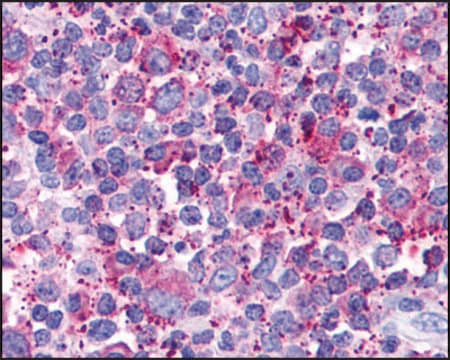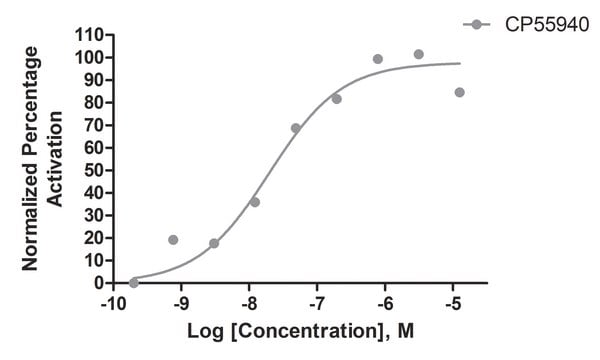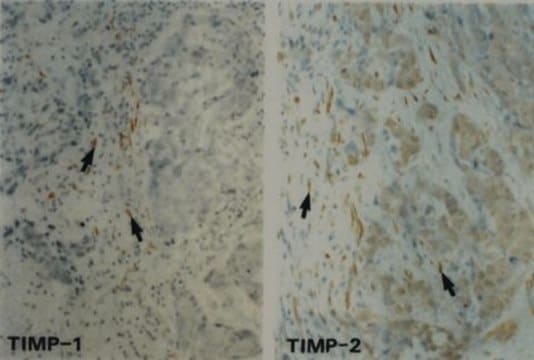HTS015RTA
Ready-to-Assay CX3CR1 Chemokine Receptor Frozen Cells
Human
About This Item
Produits recommandés
product name
Ready-to-Assay CX3CR1 Chemokine Receptor Frozen Cells, Human CX3CR1 GPCR frozen cells for Calcium Flux FLIPR Assays.
Source biologique
human
Niveau de qualité
Fabricant/nom de marque
Ready-to-Assay
Technique(s)
calcium flux assay: suitable
Numéro d'accès UniProt
Méthode de détection
fluorometric
Conditions d'expédition
dry ice
Description générale
CX3CR1 is a GPCR expressed on natural killer cells, cytotoxic T lymphocytes, and macrophages. The sole ligand for CX3CR1, fractalkine, is an unusual chemokine that is expressed as a transmembrane molecule with a CX3C domain and a mucin domain (Imai et al., 1997). Fractalkine is highly expressed on endothelial cells activated by TNFα and other proinflammatory cytokines, and fractalkine/CX3CR1 interactions mediate recruitment of macrophages into the atherosclerotic plaque (Lesnick et al., 2003; McDermott et al., 2003). In addition, fractalkine and CX3CR1 have been implicated in the pathogenesis of glomerulonephritis, HIV infection and rheumatoid arthritis (Ito et al., 2002; Faure et al., 2003; Nanki et al., 2002). Millipore′s cloned human CX3CR1 –expressing cell line is made in the Chem-4 host, which supports high levels of recombinant CX3CR1 expression on the cell surface and contains optimized levels of a recombinant promiscuous G protein to couple the receptor to the calcium signaling pathway. Thus, the cell line is an ideal tool for screening for agonists, antagonists and modulators at CX3CR1.
Description de la lignée cellulaire
Application
Actions biochimiques/physiologiques
Composants
Fifty (50) mL of Media Component.
Clause de non-responsabilité
Unless otherwise stated in our catalog or other company documentation accompanying the product(s), our products are intended for research use only and are not to be used for any other purpose, which includes but is not limited to, unauthorized commercial uses, in vitro diagnostic uses, ex vivo or in vivo therapeutic uses or any type of consumption or application to humans or animals.
Code de la classe de stockage
10 - Combustible liquids
Classe de danger pour l'eau (WGK)
WGK 3
Point d'éclair (°F)
Not applicable
Point d'éclair (°C)
Not applicable
Certificats d'analyse (COA)
Recherchez un Certificats d'analyse (COA) en saisissant le numéro de lot du produit. Les numéros de lot figurent sur l'étiquette du produit après les mots "Lot" ou "Batch".
Déjà en possession de ce produit ?
Retrouvez la documentation relative aux produits que vous avez récemment achetés dans la Bibliothèque de documents.
Notre équipe de scientifiques dispose d'une expérience dans tous les secteurs de la recherche, notamment en sciences de la vie, science des matériaux, synthèse chimique, chromatographie, analyse et dans de nombreux autres domaines..
Contacter notre Service technique







